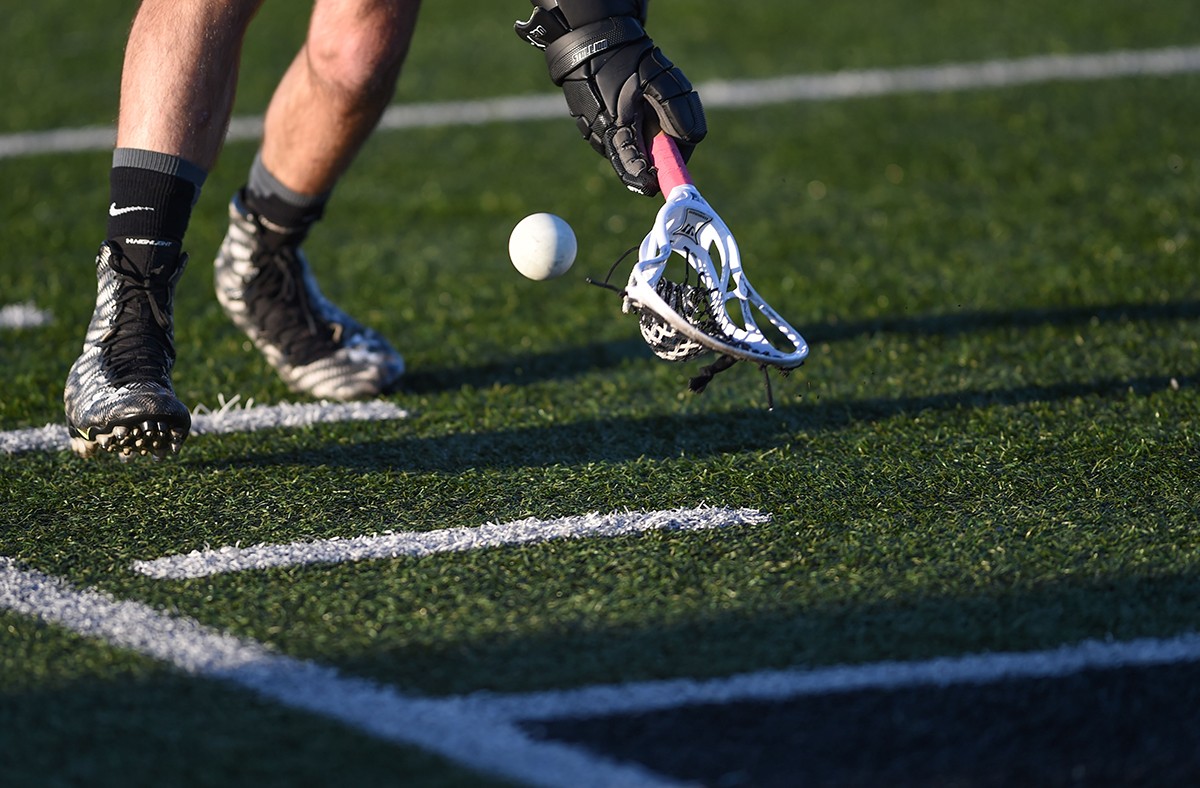KINGWOOD — It’s funny how life plays out sometimes.
Preston coach Jeff Dreisbach didn’t play lacrosse in high school. He didn’t think he was talented enough for the team at Towson High, his alma mater in Baltimore.
Dreisbach was a football player — it was the sport that carried him to the Community College of Baltimore, where he was first introduced to lacrosse as a player.
If not for that fateful decision, the sport might not exist in West Virginia today.
“I have all the respect in the world for Jeff Dreisbach,” University coach Brian Houk said. “He is like the godfather of lacrosse in West Virginia. Without him, our team wouldn’t be here; none of this would be possible.”
When Dreisbach transferred to WVU in the spring of 1971, he took the first steps toward introducing the state to the sport — he started a club squad at WVU. The team hosted Michigan State and never looked back; the club is still in existence today.
In 1989, he took over as the coach for the Mountaineers, holding the position until 2001.
However, the real impact Dreisbach had on lacrosse in West Virginia was at the high school level. With David Myerberg, Dreisbach presented two proposals to the Monongalia County Board of Education, one to start boys’ teams at UHS and Morgantown, and one to start separate girls’ teams.
In 1998, both schools’ fielded fledgling lacrosse programs got started, with Dreisbach coaching the boys at UHS. It was a move that would set in motion the state’s newest sport.
Two decades later, there is a field of 19 boys’ squads and 13 girls’ squads competing across the state, with more high schools and middle schools adding programs each year. The sport has its own governing body in the state — the West Virginia Scholastic Lacrosse Association — and a state chapter of US Lacrosse began in 2009.
For all of his contributions in helping build the present-day system and exposing the sport to West Virginians, Dreisbach was honored before Preston’s game at UHS on May 2. The ceremony was set to coincide with the 20th year of high school lacrosse in the state.
“I’m glad to see the sport is taking on a life of its own in West Virginia,” Dresibach said. “I was hoping it’d grow a little faster, but there has been a lot of resistance.”
Dreisbach attributes a lot of the pushback to coaches from other sports, who would rather see their athletes in the weight room or completing training sessions — not padded up on a lacrosse field and risking injury.
That’s one of the things Dreisbach likes at Preston High. Since founding the program for the Knights, he hasn’t run into such problems.
“Our football coach sees the value of this sport,” Dreisbach said. The players are “doing something physical in the spring; my high school coach used to call it spring football. Lacrosse incorporates footwork — I like multisport athletes. So do college coaches.”
However, Dreisbach is still aware of factors that may hinder the sport’s growth — and he is ready to help tackle them.
“We need more teams, more acceptance and more media coverage,” he said. “We also need more officials for this sport to grow. You go down south, and referees are working one game then immediately driving to work another. We have a real shortage. That’s one of our more pressing needs right now.”
As the sport addresses its needs and looks to expand its footprint even further in the Mountain State, one thing can be said for certain: Dreisbach is revered as a lacrosse legend in the region, and without him, it’s hard to tell if the sport would even had made its way to the heart of Appalachia.
And, as Dreisbach is quick to admit, the progress so far has been quite the victory itself.
“We’re doing a lot of good things here,” he said.




